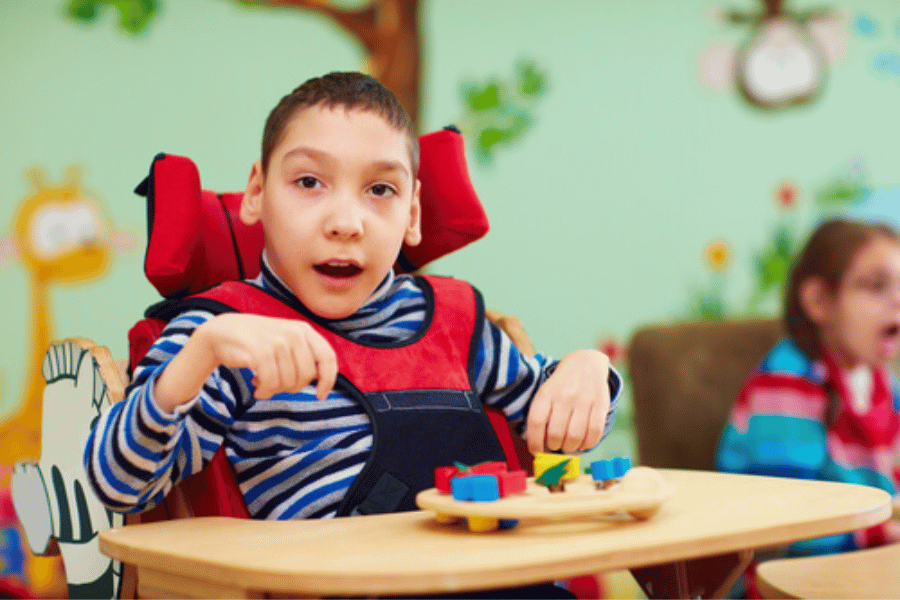Erb Duchenne and Dejerine Klumpke Palsies
Overview

Erb-Duchenne and Dejerine-Klumpke are two types of brachial plexus palsies that occur due to damage to the network of nerves connecting the neck, shoulder, arm, and hand.
Palsy, which refers to paralysis, can affect the upper or lower brachial plexus.
Erb-Duchenne palsy occurs when the upper brachial plexus is damaged, causing paralysis of the upper arm.
On the other hand, Dejerine-Klumpke palsy occurs when the lower brachial plexus is impaired, leading to paralysis of the lower arm and hand.
Symptoms of brachial plexus palsies can include a loss of sensation or movement in the affected area, and treatment options may vary depending on the severity and cause of the condition.
Symptoms
• Erb's palsy can result from childbirth, causing weakness or paralysis on one side of the body.
• Common symptoms include difficulty lifting the arm or bending the elbow due to shoulder, arm, and elbow paralysis.
• Additional symptoms may include numbness, tingling, or burning sensations in the arm or hand.
• Individuals with Erb's palsy may exhibit a specific hand position known as "the waiter's tip."
• Prompt medical attention is essential for evaluation and management if these symptoms occur.
• Early intervention can help address Erb's palsy effectively and improve outcomes.
Causes & Risks
• Large Birth Weight: Babies weighing over 8 pounds 13 ounces are at higher risk due to potential delivery complications.
• Shoulder Dystocia: When a baby's shoulder becomes stuck during birth, it can exert pressure on the neck and shoulder, increasing the risk.
• Breech Presentation: Abnormal birth positions may heighten the likelihood of nerve injuries.
• Prolonged Labor: Difficult labor can result in nerve damage, contributing to Erb's palsy.
• Assisted Delivery: Use of forceps or vacuum extraction during delivery can elevate the risk of brachial plexus injuries.
• Risks: These include permanent disability, muscle weakness, limited range of motion, chronic pain, and emotional stress for both child and parents.
Test & Diagnosis
• Lack of movement in an infant's upper or lower arm can indicate a birth injury, with symptoms like a limp arm or bent elbow.
• Doctors can detect signs such as uncontrolled arm movement and reduced reflexes during a physical exam.
• X-rays may rule out collarbone fractures, while electromyography, MRI, and CT scans can confirm nerve damage and diagnose brachial plexus palsy.
• Infants may exhibit an uncontrolled arm flop when rolled side to side, indicating possible nerve injury.
• Lack of reflexes on the affected side can indicate nerve damage, warranting further investigation.
• Patients or caregivers providing details about the injury can assist doctors in understanding the nature and potential causes of the birth injury.
Treatment
• Positive Prognosis: Neonatal brachial plexus palsies can often have a favorable outcome for infants, especially in mild cases.
• Non-Surgical Treatment: Regular massages and physiotherapy can aid in regaining complete arm control within three to nine months in mild cases.
• Surgical Intervention: If no improvement occurs by nine months, surgery may be recommended, including nerve grafts or transfers to replace damaged nerves.
• Trauma-Related Injuries: Surgery may be necessary for avulsion and rupture injuries in older patients, typically caused by external traumas like car accidents.
• The prognosis of neuroma and neuropraxia injuries depends on the extent of nerve damage, with spontaneous recovery common, leading to 90 to 100% arm function return.
• Surgery may be the primary option for older patients with severe injuries, highlighting the importance of tailored treatment approaches based on age and injury severity.
Living With
Erb-Duchenne palsy and Dejerine-Klumpke palsy encompass two types of brachial plexus injuries, presenting considerable challenges for affected individuals.
These injuries result from damage to the nerves controlling arm and hand muscles and sensation, often occurring during childbirth, accidents, or trauma.
The extent of nerve damage varies, leading to diverse impacts on daily life.
While some may face minor movement and sensation issues, others endure more severe impairments affecting daily activities.
Despite the severity, managing Erb-Duchenne and Dejerine-Klumpke palsy necessitates ongoing support and intervention to help individuals navigate their challenges and maintain fulfilling lives. It underscores the importance of tailored management strategies to address individual needs and enhance quality of life for those living with these conditions.
Complications
• Erb's palsy, or Erb-Duchenne palsy, can develop during childbirth due to excessive stretching of the baby's neck and shoulder area.
• This stretching can damage the brachial plexus nerves, affecting shoulder and upper arm muscle control.
• Complications vary based on nerve damage severity, including arm weakness, restricted motion, muscle atrophy, contractures, and chronic pain.
• Treatment typically involves physical and occupational therapy to improve function.
• In some cases, surgery may be necessary to repair or reconstruct damaged nerves.
• Prompt diagnosis and intervention are crucial for managing Erb's palsy and minimizing long-term effects.

The Content is not intended to be a substitute for professional medical advice, diagnosis, or treatment. Always seek the advice of your physician or other qualified health provider with any questions you may have regarding a medical condition.
Know more about
Our Healthcare Planner
Personal Health Planner at BNC is a support staff who listens to your concerns and connects you with a Neuro Care provider. They prioritize your needs and create a trusting relationship between you and the provider.
Three fundamental values we can assure you:
1. Personalized Healthcare.
2. Most advanced robotic therapies
3. Transparent pricing





